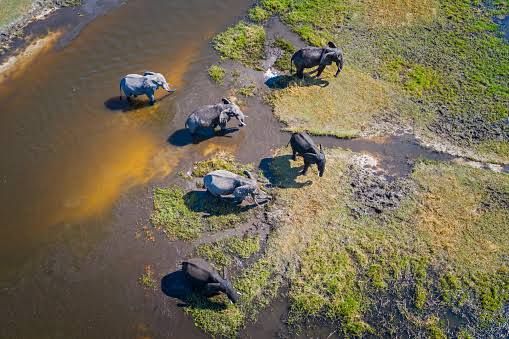A Single Mosquito Can Topple an Elephant, A Hundred Can End a Civilization: Mosquitoes as Biological Weapons and Their Impact on History
Often referred to as the deadliest creature on Earth, mosquitoes have had an immense impact on human history. More than just an itchy nuisance, mosquitoes have served as vectors for a host of devastating diseases, including malaria, dengue fever, and the Zika virus. Yet, in one of the darker chapters

Often referred to as the deadliest creature on Earth, mosquitoes have had an immense impact on human history. More than just an itchy nuisance, mosquitoes have served as vectors for a host of devastating diseases, including malaria, dengue fever, and the Zika virus. Yet, in one of the darker chapters of our past, humans have also sought to harness these insects as biological weapons, a move that could potentially disrupt civilizations, much like the proverbial swarm of mosquitoes that can topple an elephant.
During World War II, the infamous Japanese Unit 731 turned to nature's most lethal creatures, breeding and infecting mosquitoes with malaria and dengue fever. These mosquitoes were then deployed over enemy territories with the sinister objective of spreading disease. Although the true impact of these biological warfare efforts remains a matter of debate, the human cost was undeniably significant.
After the atrocities of the Second World War, the international community came together to prevent further misuse of biological agents. The Biological Weapons Convention of 1972 explicitly prohibited the use of biological weaponry, including bacteria, viruses, and fungi. However, the legacy of using mosquitoes as biological weapons serves as a potent reminder of the catastrophic consequences that could follow if these guidelines were to be disregarded.
Interestingly, some researchers have proposed that mosquitoes, bearing potent diseases, might have contributed to the decline of ancient civilizations. The Maya civilization, one of the most advanced societies of the ancient world, inexplicably collapsed around the 10th century. Some theories suggest that a series of droughts may have precipitated this downfall, but the role of disease cannot be overlooked.
While the hypothesis remains speculative, it's plausible that a significant disease outbreak, potentially spread by mosquitoes, could have had catastrophic effects on the Mayan population. In societies without modern medical infrastructures, an epidemic could devastate populations, destabilize social structures, and ultimately lead to the collapse of entire civilizations.
In our modern era, the battle against mosquitoes has taken on a more defensive approach. Through the use of genetic modification, scientists hope to control the diseases that mosquitoes naturally spread. Organizations such as Oxitec are pioneering the release of genetically modified mosquitoes to decrease their populations and thereby limit the spread of disease.
In understanding our relationship with these tiny but potent creatures, it is essential to remember our history. The potential damage from biological agents like mosquitoes is tremendous and should never be underestimated or exploited for destructive purposes. Rather, our collective aim should be to harness this power for the protection and betterment of human health, preventing the fall of the proverbial elephant – or even a civilization – at the hands of a mosquito.




